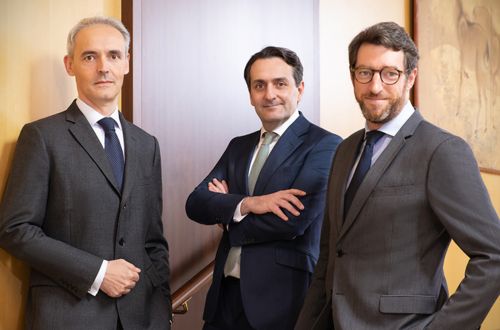Expert perspective on real estate club deals
Investing in a real estate club deal presents a number of advantages, which are discussed below by Frédéric Travert, Chairman of Valbaume Immobilier & Head of Real Estate and Régis Négrail, Head of Real Estate Investment.
Can you remind us what a real estate club deal is?
Frédéric Travert: a real estate club deal brings together a limited number of private investors in order to collectively acquire one or several clearly identified real estate assets.
This type of investment, normally made by institutional investors, comes with numerous advantages that a traditional real estate investment does not necessarily offer.
What are the advantages of the real estate club deal for a private investor?
F.T. : Investing in a club deal through an asset management company allows a private investor to access a category of quality underlying real estate assets normally reserved for institutional investors.
It also allows the investor to bypass all the constraints inherent in real estate investment: sourcing of assets, negotiation, acquisition, property management, disposal. The offer is entirely “packaged”.
A distinction is sometimes drawn between distribution club deals, which aim to create regular revenues, and capitalisation club deals, which generate capital gains. Can you tell us more?
Régis Négrail: There are two primary types of club deal: the distribution club deal, generally in the form of property investment companies (SCI) and the capitalisation club deal, in the form of simplified joint-stock companies (SAS).
In both cases, investors benefit from clear and exhaustive information, as AMF regulations require the asset management company to provide a periodic reporting addressed to investors.
In this way, the strategy put forward by the asset management company is fully legible.
There are also vehicles in the form of OPPCIs or FPCIs, but we consider them to be aimed at a more experienced clientele.
F.T. : I would add that private investors are also reassured by the transparency of these two investment vehicles. In a distribution club deal, the private investor has the opportunity to consider all the parameters of the investment before making a decision and entrusting funds to the asset management company. They are informed about the geographic location of buildings, the tenants, and the duration of the leases.
In a capitalisation club deal, the asset management company proposes a clear and detailed investment strategy. The investment is subject to the formal agreement of investors with the aim of acquiring the asset presented while fully observing the previously defined investment strategy. The asset management company cannot acquire the asset unless an agreement is reached.
So there are strong similarities with traditional real estate investment then?
R.N. : In both distribution and capitalisation real estate club deals, the private investor very quickly realises that this investment solution is just as valid as any real estate investment, while it benefits from the dilution and mutualisation of rental risk covering several buildings and several tenants. Moreover, the decision to sell a building is made solely by associates of the club deal (20 to 80 per club deal).
Can you discuss the disadvantages of this type of investment?
There are no disadvantages per se, but there are risks inherent in all real estate investments: liquidity risk, rental risk, and risk of capital loss.
To give a concrete example, in a distribution club deal, a tenant’s departure or default on a payment can reduce the anticipated yield (less rental income received) and the value of shares.
What makes investing within a club deal relevant today?
F.T. : In the context of the unprecedented crisis we are facing, investment via distribution vehicles offers strong resilience at this stage. In fact, the quality of operations (asset management company, type of tenants, location) proves very robust for the investor.
A subsidiary of CA Indosuez Wealth (France), Valbaume Immobilier is a simplified joint-stock company registered with the Paris Trade and Companies Register under No. 340 702 802. It holds a professional licence for real estate and business transactions, No. CPI 7501 2017 000 019 922 delivered by the Paris - Ile-de-France Chamber of Commerce and Industry. Valbaume Immobilier has share capital of €7500 and its registered office is located at 17, rue du Docteur Lancereaux – 75382 Paris cedex 08.Valbaume Immobilier is backed by a guarantee of €110,000 granted by CA Indosuez Wealth (France).
Under no circumstances can this article be construed as an offer to subscribe to a life insurance policy or capital bond, or an offer or solicitation, or canvassing for the purpose of subscribing to financial products or services. It has not been designed and is not intended for persons in any particular country. It is not intended for persons who are citizens, domiciled for tax purposes or resident in a country or jurisdiction where its distribution, publication, availability, or use would breach the applicable law or regulations. You are recommended to carefully read the KIID (or the prospectus), the Key Information Document, the Detailed Notice or the final terms and conditions of the product or service before subscribing. Past performance is not an indication of future performance, and the value of an investment can go down as well as up depending on developments in the financial markets.
July 07, 2020




